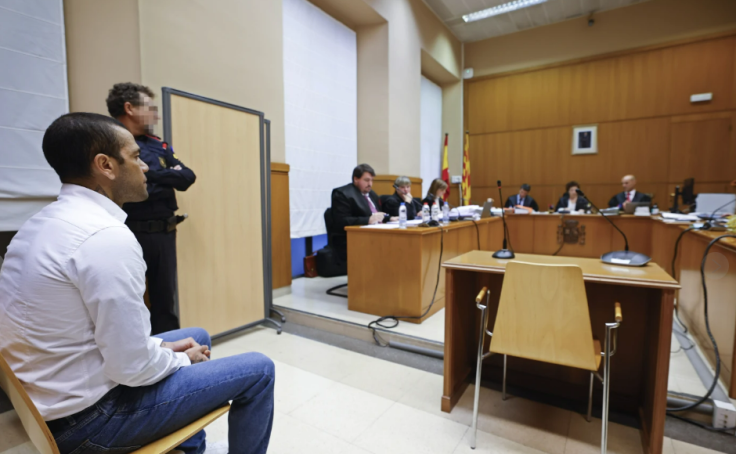
A Spanish court determined on Thursday that Brazilian soccer star Dani Alves is guilty of sexually assaulting a woman in a nightclub in Barcelona, and sentenced him to four and a half years in prison.
Alves, who has denied any wrongdoing throughout the trial, still has the possibility to appeal the conviction. He has been in jail for over a year now, his bail request rejected because the court considered him to be a flight risk.
The sentence was half of what state prosecutors had requested, but much higher than the acquittal sought by the defense. Alves' lawyers had also requested that, if the court indeed found him guilty, he'd receive a maximum sentence of a year and a 50,000 euro compensation for the victim. The victim's lawyers wanted he be sentenced to 12 years in prison.
The court also sentenced Alves to five years of parole after being released from prison and to pay a 150,000 euro compensation to the victim for the moral harm and damages caused, as well as an extra 9,000 for mild injuries. He also can't communicate with the victim in any way nor get closer than 1,000 meters from her.
The event took place in late December 2022 at the Sutton Nightclub, in Barcelona. It is the first high-profile sex crime trial since the Spanish parliament changed its legislation in 2022 to make consent a key determinant in any sexual assault crime.

The bill, passed by the Spanish parliament in May 2022 and popularly known as the "only yes means yes", defines consent as an "explicit expression of a person's will, making it clear that silence or passivity do not equal consent.
According to testimonies, the Brazilian soccer player met the woman at a VIP area, where she had gone with a friend and her cousin. The woman then followed Alves to a private bathroom where he physically assaulted her, used insulting language and raped her.
Alves initially claimed he did not have any sexual contact with the woman, but then repeatedly modified his defense while in custody, admitting to a sexual encounter that he says was consented to by the accuser.
The court concluded that there was enough evidence besides the victim's testimony to determine that she did not consent to the relations. "For there to be a sexual assault it's not necessary for physical injuries to happen, nor to see a heroic opposition by the victim to have sexual relations. In this case we also found a series of injuries in the victim that make it clear there was violence to coerce her will, with the subsequent rape, which has not been denied by the defendant."
© 2024 Latin Times. All rights reserved. Do not reproduce without permission.







